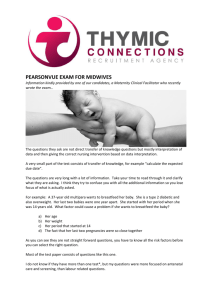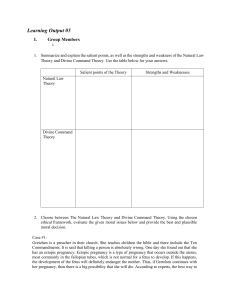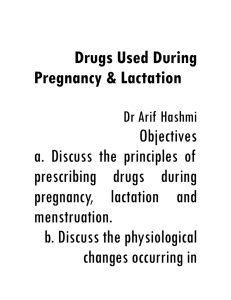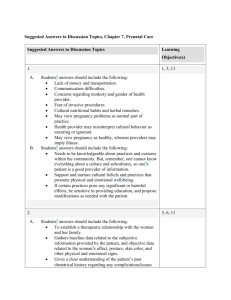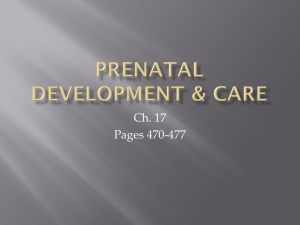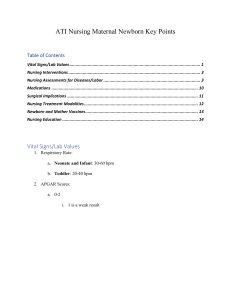Pharmacology Outline - Baptist Health College
advertisement
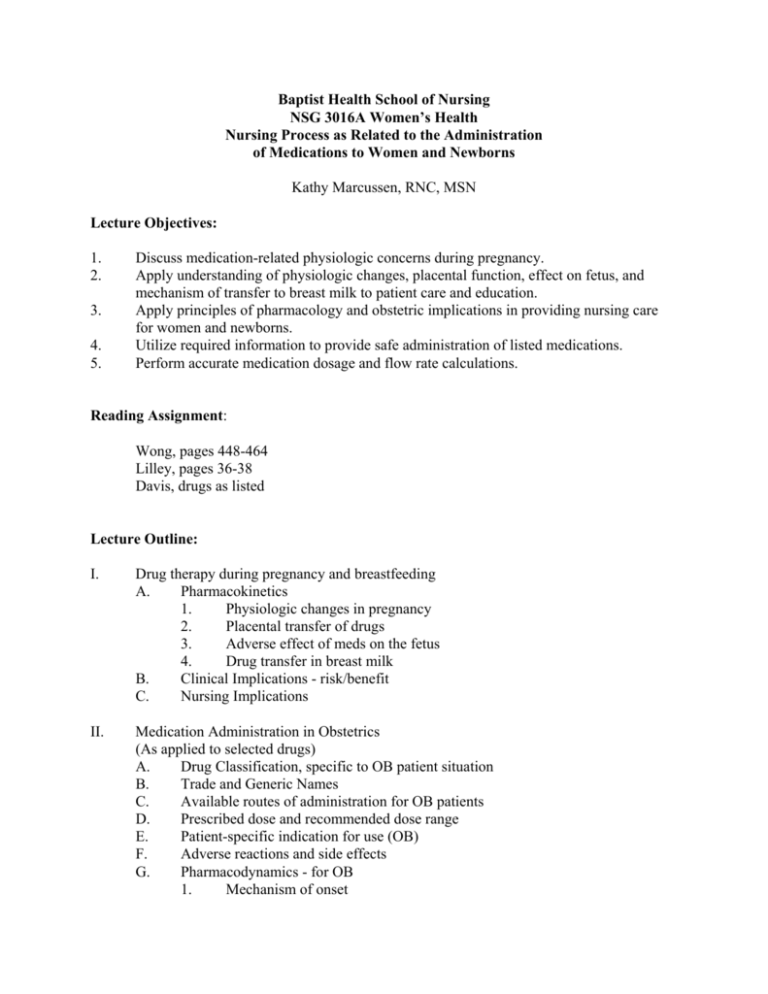
Baptist Health School of Nursing NSG 3016A Women’s Health Nursing Process as Related to the Administration of Medications to Women and Newborns Kathy Marcussen, RNC, MSN Lecture Objectives: 1. 2. 3. 4. 5. Discuss medication-related physiologic concerns during pregnancy. Apply understanding of physiologic changes, placental function, effect on fetus, and mechanism of transfer to breast milk to patient care and education. Apply principles of pharmacology and obstetric implications in providing nursing care for women and newborns. Utilize required information to provide safe administration of listed medications. Perform accurate medication dosage and flow rate calculations. Reading Assignment: Wong, pages 448-464 Lilley, pages 36-38 Davis, drugs as listed Lecture Outline: I. Drug therapy during pregnancy and breastfeeding A. Pharmacokinetics 1. Physiologic changes in pregnancy 2. Placental transfer of drugs 3. Adverse effect of meds on the fetus 4. Drug transfer in breast milk B. Clinical Implications - risk/benefit C. Nursing Implications II. Medication Administration in Obstetrics (As applied to selected drugs) A. Drug Classification, specific to OB patient situation B. Trade and Generic Names C. Available routes of administration for OB patients D. Prescribed dose and recommended dose range E. Patient-specific indication for use (OB) F. Adverse reactions and side effects G. Pharmacodynamics - for OB 1. Mechanism of onset H. I. III. 2. Onset 3. Peak 4. Duration 5. Half-life Contraindications/major interactions, especially in pregnancy Nursing Considerations and Implications 1. Fetus 2. Laboring patient 3. Neonate 4. Postpartum patient 5. Gynecology patient Medications: terbutaline (Brethine) betamethasone (Celestone) ampicillin dinoprostone (Cervidil) misoprostol (Cytotec) oxytocin (Pitocin) butorphanol (Stadol) morphine sulfate fentanyl bupivicaine (Marcaine) naloxone (Narcan) lidocaine (Xylocaine) methylergonovine (Methergine) carboprost (Hemabate) erythromycin ointment (Ilotycin) phytonadione (Vitamin K, AQUAmephyton) magnesium sulfate hydralazine (Apresoline) labetalol (Normodyne) calcium gluconate oxycodone/apap (Percocet) Rho(D)immune globulin (RhoGam) IV. Example: When studying butorphanol (Stadol), consider how its administration during labor will effect the fetus...decrease in fetal heart variability, anticipate respiratory depression when the fetus is delivered. Neonatal narcan... How will it effect the mom if given postpartum? Sedation, sleepiness, unsteady when ambulating, constipation a risk. And the breastfed neonate? Sleepy, difficult to awake for feeding, poor feeder.
